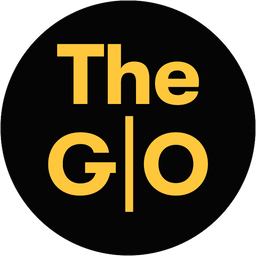
How to Prosecute Putin
Gordon Brown | Putting PUTIN on trial for the international crime of aggression would be more straightforward than trying him for war crimes and crimes against humanity. Since the International Criminal Court has no mandate to prosecute such crimes, a special international tribunal must be formed.
By Gordon Brown*
A few weeks ago, the International Criminal Court issued an arrest warrant for Russian President Vladimir Putin for the war crime of unlawful deportation and transfer of children from occupied areas of Ukraine to Russia. It is a significant – indeed, historic – step toward holding Putin and his henchmen accountable for their crimes in Ukraine. But more must be done.
Evidence of Russian atrocities in Ukraine – including murder, rape, torture, and attacks on civilians, civilian infrastructure, and other non-military targets – continues to accumulate. Just last month, a United Nations-backed inquiry published a report accusing Russia of war crimes and possible crimes against humanity. While the ICC indictment is unlikely to be the only legal action brought against Putin and his cronies, it is the first. The ICC prosecutor has ensured that Putin will go down in history as the first leader of a permanent member of the UN Security Council to be indicted for an international crime.
The move is not merely symbolic. Those who think imprisoning Putin is an impossibility should recall that Liberian war criminal Charles Taylor is currently serving a 50-year sentence in a British prison, and former Serbian leader Slobodan Milošević died in prison in The Hague while on trial for war crimes. And those who think that the arrest warrant will have no impact on the accused should take note of reports of growing dissent within Putin’s leadership cabal, with insiders no doubt fearing that they will soon face indictments as well.
Admittedly, while the ICC president has moved unusually quickly and issued a statement of intent to arraign Putin in The Hague, Putin is unlikely to leave himself open to arrest by entering any of the 123 states that are signed up to the ICC. Sadly, Russia does not recognize the ICC (nor does the United States). So, given that US President Joe Biden has welcomed action, despite opposing the ICC, how can the world add to the pressure on Putin and his cronies?
The crime of aggression – beginning with the invasion of Crimea in 2014 – is Putin’s “original sin,” the font of all the recent atrocities. As University College London law professor Philippe Sands has argued, aggression would be more straightforward to prosecute than war crimes and crimes against humanity, because it can be linked directly to the Kremlin.
The ICC’s mandate does not extend to prosecuting the crime of aggression, but a special international tribunal can be created with an explicit focus on this “leadership crime.” The tribunal’s work would complement and give weight to that of the ICC.
The encouraging news is that all major European countries, as well as the European Union and the Council of Europe, have endorsed Ukrainian President Volodymyr Zelensky’s request that Putin and his circle be prosecuted for the crime of aggression. A tribunal could be constituted in the coming months.
But American support will be vital to the success of such a tribunal. Biden need not fear that supporting an investigation into Putin would tilt the scales – which he has so carefully calibrated – from support for Ukraine’s defense to active aggression against Russia. After all, the US has regularly supported special tribunals – notably for Cambodia, Lebanon, Rwanda, Sierra Leone, and the former Yugoslavia – to prosecute international crimes. And US prosecutors were at the forefront of the Nuremberg trials, carried out by the International Military Tribunal to prosecute and punish leading Nazis after World War II. The same went for the International Military Tribunal for the Far East, which carried out the “Tokyo trials” of Japanese war criminals.
Both tribunals were founded upon the 1941 Declaration of St. James’s Palace, or London Declaration, in which the Allied powers agreed that there would be no safe haven for those guilty of aggression. This would likewise form the basis of the special tribunal tasked with investigating and prosecuting Putin.
Concerns that such a tribunal would open the door for prosecutions relating to conflicts like the Iraq War are also unfounded. The special tribunal on crimes of aggression in Ukraine would be a response to Zelensky’s explicit request, made on behalf of Ukraine’s government and people. The tribunal’s authority would be derived from Ukrainian law, together with the prohibition on crimes of aggression inherent in international law. And the body would focus exclusively on the situation in Ukraine, where the evidence of wrongdoing arguably – and unlike in many other conflicts – meets the very high standard of proof required.
Related content:

Nor will the prospect of a trial make Putin less willing to contemplate peace talks. I dealt directly with him, as both finance minister and prime minister of the United Kingdom, not least over the assassination in 2006 of the UK-nationalized Russian defector Alexander Litvinenko. Those experiences taught me that the only language Putin understands is that of power. He will not view pulled punches as an olive branch worth taking, but as yet more appeasement born of weakness.
In the face of Russian brutality, Ukrainians have stood united and fought valiantly. The rest of the world – led by the US – must show the same courage and resolve to ensure that justice is served, beginning with Russia’s top leaders.
America has willed the end – accountability for Putin and his cronies. Now it must join Europe in supporting the means.
*Gordon Brown, a former prime minister of the United Kingdom, is Chair of Education Cannot Wait’s High-Level Steering Group.
Copyright: Project Syndicate, 2023.

